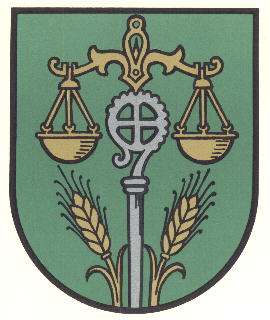Midlum: Difference between revisions
Jump to navigation
Jump to search
Knorrepoes (talk | contribs) m (Text replace - "'''Origin/meaning :'''<br/>" to "====Origin/meaning====") |
Knorrepoes (talk | contribs) m (Text replace - "|width="15%"|50 px|right |}" to "|width="15%"|50 px|right |}<seo title="Wappen, Gemeindewappen" />") |
||
| Line 3: | Line 3: | ||
|width="70%" align="center" |'''Heraldry of the World<br/>Civic heraldry of [[Germany]] - [[Deutsche Wappen|Deutsche Wappen (Gemeindewappen/Kreiswappen)]]''' | |width="70%" align="center" |'''Heraldry of the World<br/>Civic heraldry of [[Germany]] - [[Deutsche Wappen|Deutsche Wappen (Gemeindewappen/Kreiswappen)]]''' | ||
|width="15%"|[[File:Germany.jpg|50 px|right]] | |width="15%"|[[File:Germany.jpg|50 px|right]] | ||
|} | |}<seo title="Wappen, Gemeindewappen" /> | ||
Revision as of 18:05, 5 November 2012
| Heraldry of the World Civic heraldry of Germany - Deutsche Wappen (Gemeindewappen/Kreiswappen) |
MIDLUM
State : Niedersachsen
District (Kreis) : Cuxhaven (until 1977 Wesermünde)
Samtgemeinde : Samtgemeinde Land Wursten
Origin/meaning
The crozier symbolises that Midlum in medieval times belonged to the local monastery, which was later moved to Altenwalde and Neuenwalde. The monastery played a major role in the development of the area. In medieval times Midlum also was an important marketplace, which is symbolised by the scales. The two wheatears in the lower half of the arms symbolise that the main source of income for the village at the moment is agriculture.
Literature : Wappen des Landkreises Wesermünde, 1973

